Initiatives for Open Innovation
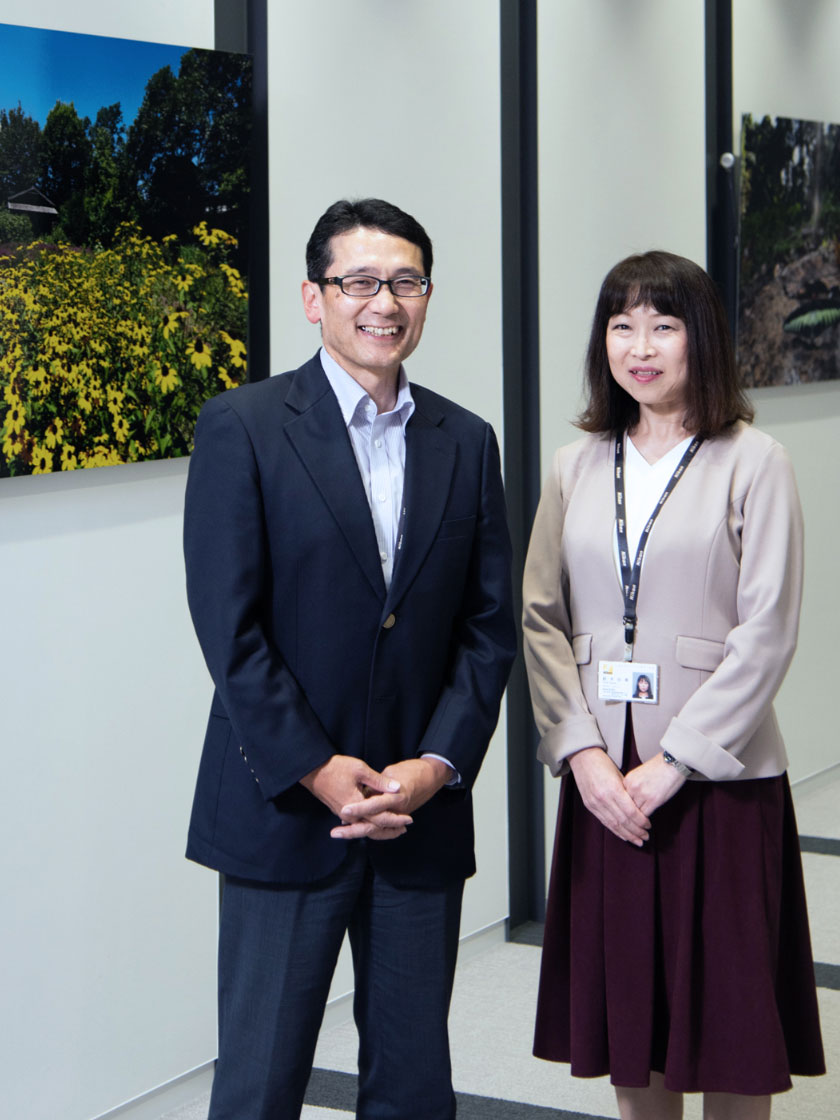
Nikon Corporation
Nikon Corporation and SBI have been jointly operating a corporate venture capital (CVC) fund since July 2016. We talked about the role SBI plays in the Nikon Corporation's open innovation efforts.
Could you tell us how and why you decided to promote open innovation as a company?
Mr. Suzuki: In our 2015 Medium-Term Management Plan, our company decided to enter into the medical business. In doing so, we believed that we could accelerate our new business if we utilized M&A and open innovation instead of just entering the market by ourselves so we invested in several venture capital funds to gather information and insights on promising startups around the world. One of these is the SBI VentureFund No1~4 Investment LPS. Starting in 2015, we collected information through multiple venture capital funds, including those of SBI. In order not just to collect information but also to make direct investments, we began managing a CVC fund with SBI in 2016, and this has continued to the present day.
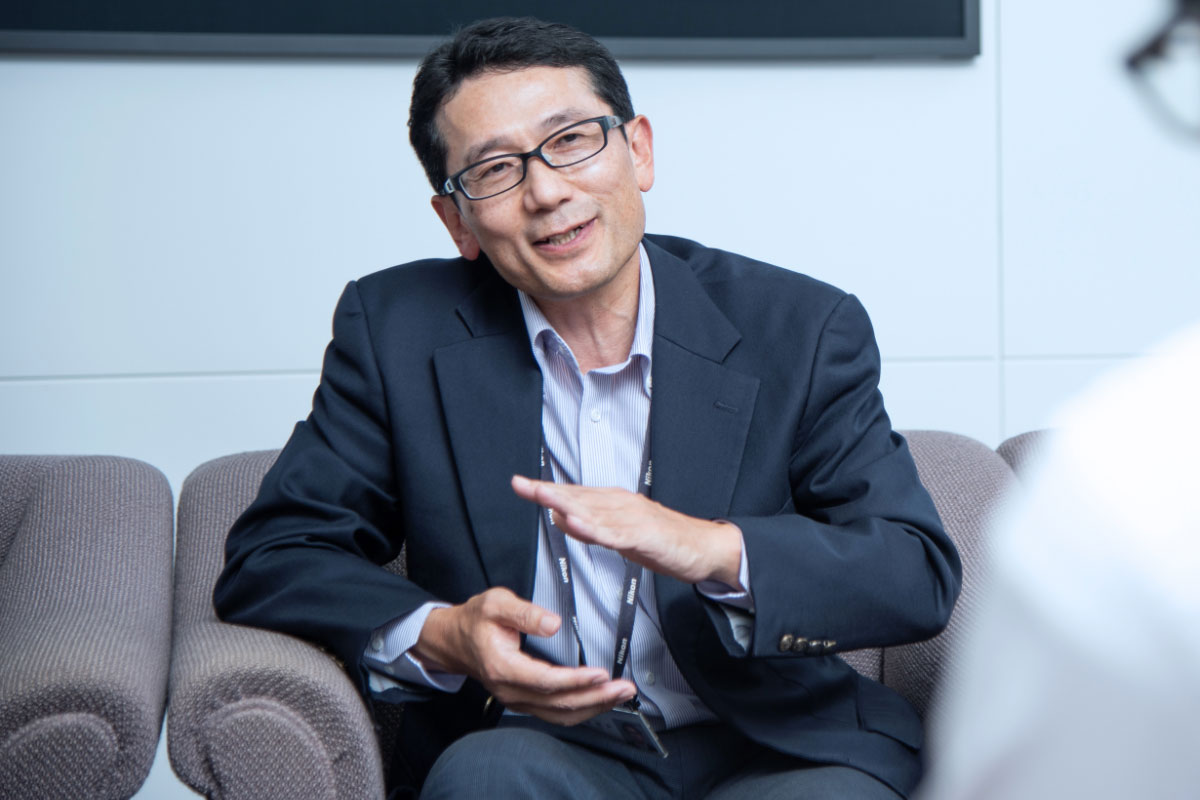
There are cases where you manage your own CVC fund and cases where you manage it jointly with an external partner. Why did Nikon Corporation decide to run it jointly with an external partner?
Ms. Suzuki: At first, our main purpose was to gather information on various startups through limited partnership (LP) investment. But that is indirect investment. Nikon began considering the establishment of a fund to directly invest in companies that have business synergies and create new businesses through collaboration and other means.
However, since we initially had no expertise related to fund management, we thought we needed a strong external partner and thus chose SBI Investment as our partner.
What made you choose SBI from among various potential partners?
Ms. Suzuki: After we narrowed the list down to three companies, we carefully examined various benchmarks such as the scale of investment, investment performance, the number of deals, and the number of overseas offices. In addition, the staff in charge gave us a lot of detailed information, and demonstrated excellent customer service, so we made a comprehensive judgment including such aspects of our future relationship.
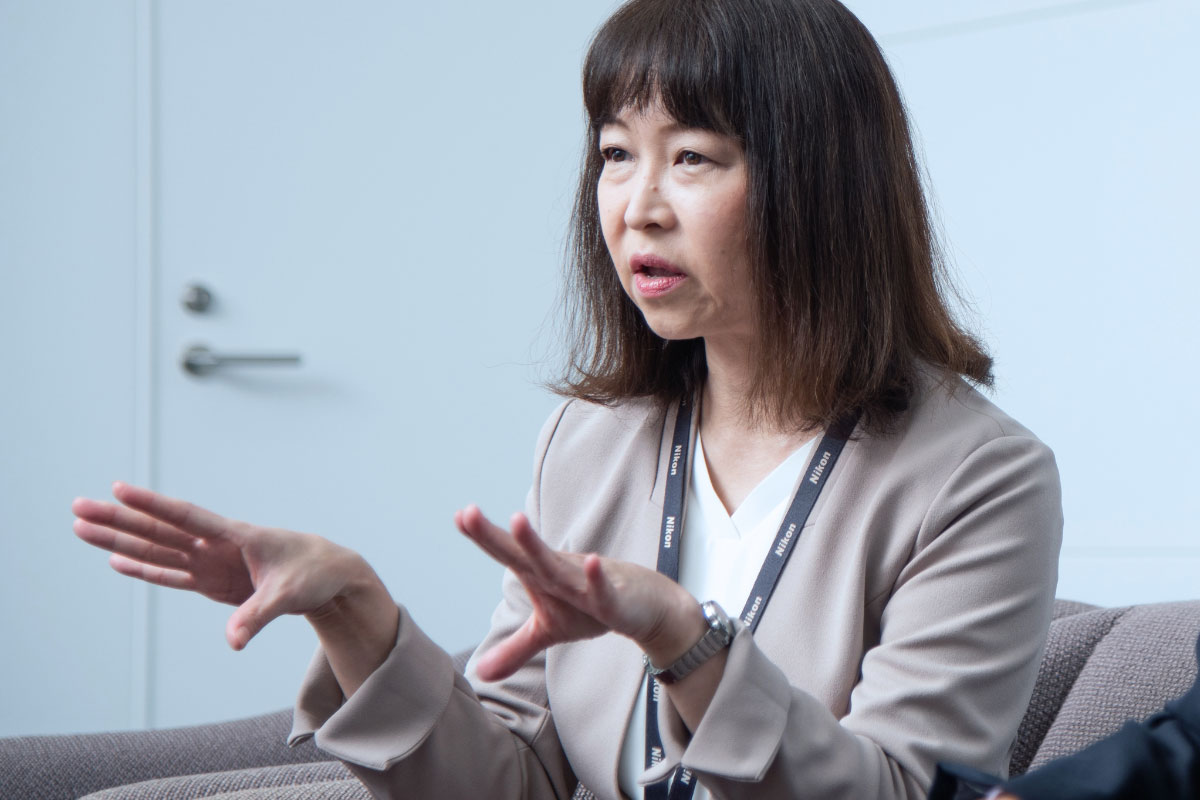
Could you tell us about regular initiatives with SBI?
Mr. Suzuki: We have weekly pipeline meetings. SBI introduces us to interesting startups, and Nikon shares information on startups that we have researched on our own, leading to lively discussions.
Nikon sometimes invests directly in companies in new business areas, and sometimes invests through funds. How are they divided?
Mr. Suzuki: We have three ways of investing. They are: 1) M&A; 2) direct investment led by a business unit (both minority and majority investment); and 3) investment utilizing our CVC fund with SBI (micro-investment). The first type, M&A, involves investments aimed at expanding Nikon's most recent business domains and strengthening its management foundations. The second type, direct investment by business units, involves investments in companies that match the direction of the business unit, based on a three-year horizon. Finally, the third type, micro-investment (investment by the CVC fund), involves investments in companies with the potential to act as a foothold for the future, based on a slightly longer, five-year horizon.
The scale of investment is also different. Although direct investments by business divisions are often in the range of tens of millions of dollars, micro-investments with SBI are in the range of $3 million or less, in technologies and companies that can be expected to grow in the future. These are not hard and fast rules, but this is roughly how we divide the different types of investment.
Members of the CVC management team at SBI sometimes also provide their opinions on M&A and business unit-led investment deals. In particular, minority investments made by business units are sometimes closely related to investments from funds, and we often ask SBI to provide opinions and information in such cases. Our ideal form of investment is to first make a small investment and then make a majority investment or M&A if we can subsequently identify synergies through collaboration. We have made additional investments in more than half of the CVC fund deals with SBI, and we can expect synergies with our company in the future.
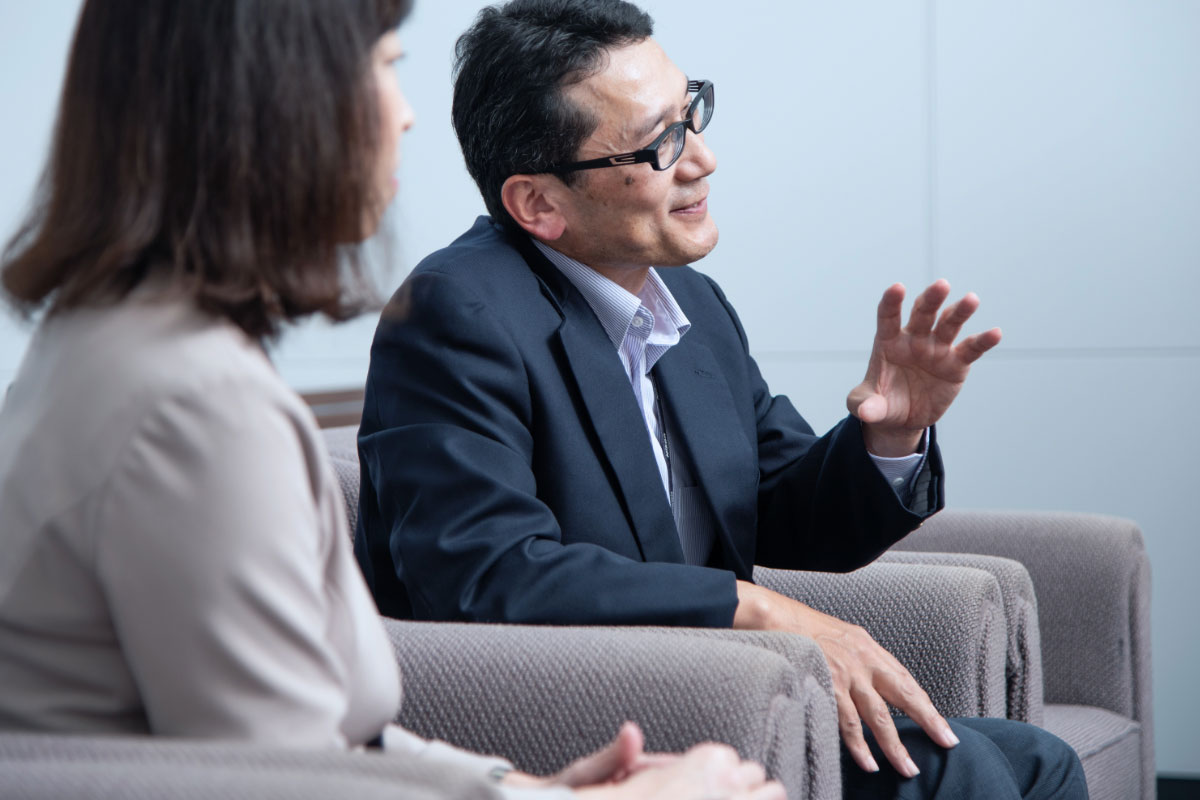
Are there any cases in which the management of CVC funds has helped your core business?
Mr. Suzuki: We were able to invest in three or four companies that can be expected to provide new products and services that align with our vision for the future. On the other hand, we have invested in several companies as footholds for future new businesses, and our business units have commissioned development to these companies. These investments have yet to generate revenues, but they may lead to new businesses for our company in the near future.
Have we been able to help you other than fund management?
Mr. Suzuki: SBI supports us in a wide variety of ways. For example, some of the SBI members served as judges at our in-house entrepreneurship program. During our 2017 Corporate Accelerator Program, people from SBI served as judges and mentors, providing advice on how to support startups.
Are your targets for investees, such as M&A and capital and business tie-ups, predetermined?
Mr. Suzuki: Our primary goal is to create new businesses, so our top priority is to achieve that goal. In order to achieve this goal, we believe it is important to have all possible means at our disposal, including M&A, direct investment, and capital and business tie-ups.
Ms. Suzuki: In order to do so, we make effective use of information from SBI. SBI has also helped us a great deal by introducing companies that are not just investment deals, but also proof of concept (PoC) candidates or have the potential to become partners in the future. SBI has also introduced their portfolio companies as our potential partners for collaboration, and we have visited some of their plants.
There are still many companies that have yet to make effective use of CVC due to conflicts with business units or reluctance to engage in forward-thinking initiatives. What are the challenges Nikon Corporation has faced in its efforts toward open innovation?
Mr. Suzuki: Well, these are some of the common issues related to CVC (laughs). Until now, we have done everything in our own way, so there are still not many people that have new business ideas based on investment, or who think of working with a startup as a win-win scenario. There are many people who have been successful doing things their own way and with their own product-out concepts. Speaking from my personal experience, when I was in the Design Department of the Imaging Business Unit, we had success in developing, designing, and commercializing our products ourselves. With the help of SBI, we are gradually shifting our mindset toward open innovation and making effort to infiltrate this concept into us, but we still have a long way to go.
Ms. Suzuki: Though the decision-making process and evaluation criteria for CVC investments are completely independent from our businesses, so the sense of speed is different. Through our CVC initiative, I believe that business development and investment execution have become smooth.
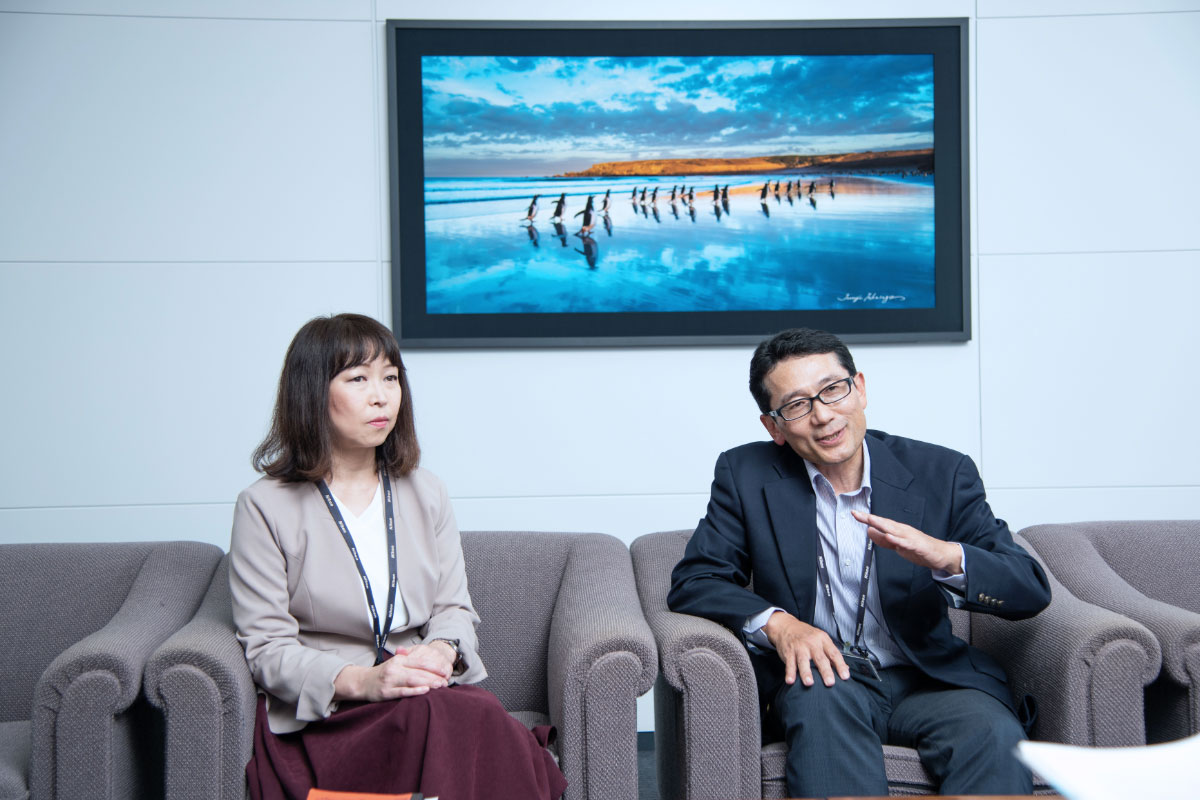
What is Nikon’s assessment of SBI and thoughts on positive aspects?
Mr. Suzuki: We have been working together since 2015, and it has been very helpful to have SBI introduce various domestic and overseas companies that meet our needs.
If you look for companies on your own, your perspective becomes narrow, and it is difficult to search globally. Also, although we can evaluate the technology, our ability to evaluate companies is lacking when compared with that of SBI, which is backed by your track record thus far. In that respect, I think we have been making good investments by combining our respective strengths.
Ms. Suzuki: I think we also have grown a lot. SBI has supported our acquisition of the knowledge required for venture capital investment through management of the CVC fund and study sessions, and I believe that this has facilitated trouble-free investment activities.
Do you have any advice for companies looking to pursue open innovation in the future?
Ms. Suzuki: I think both of our companies have been able to grow through these activities. In addition to investment activities, SBI has also provided us with expertise in areas such as supporting the growth of startups through post-investment monitoring and accelerator programs, which has been very helpful.
Mr. Suzuki: As an operating company, we have strengths in technology, but we have come to the point where we are able to draw a future for the creation of new businesses by combining our strengths with SBI's knowledge of venture capital investment, which we do not have. From SBI’s perspective, it has also benefited us to enhance our investment connoisseur and have acquired extensive knowledge and expertise. I believe that it is important that we work together in a way that enables both companies to grow from open innovation through CVC.
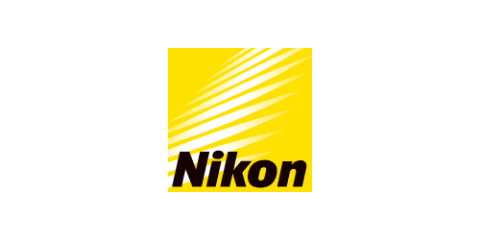
- Company name
- Fund establishment date
-
July 2016
- Main businesses
-
Manufacture and sale of optical instruments